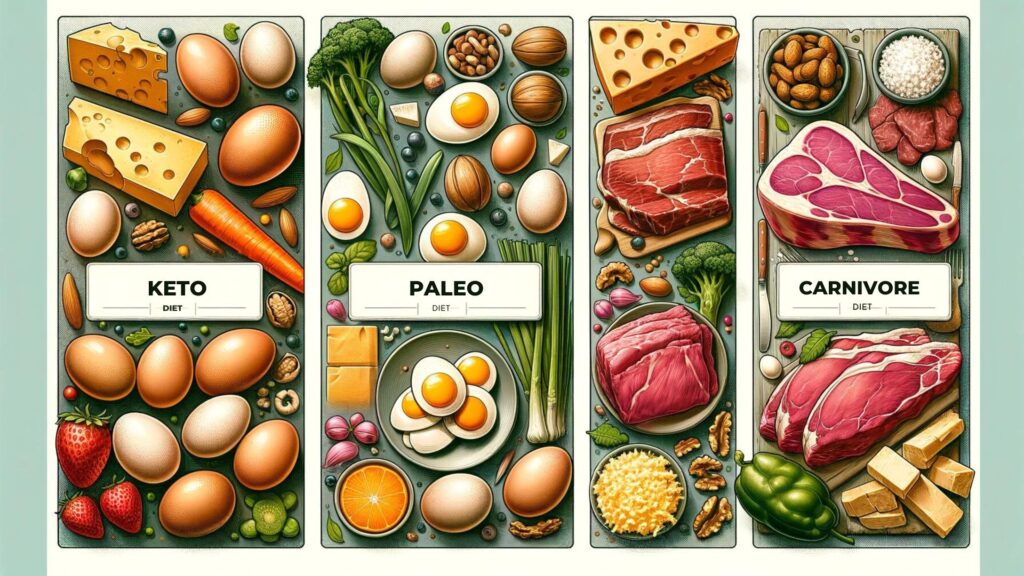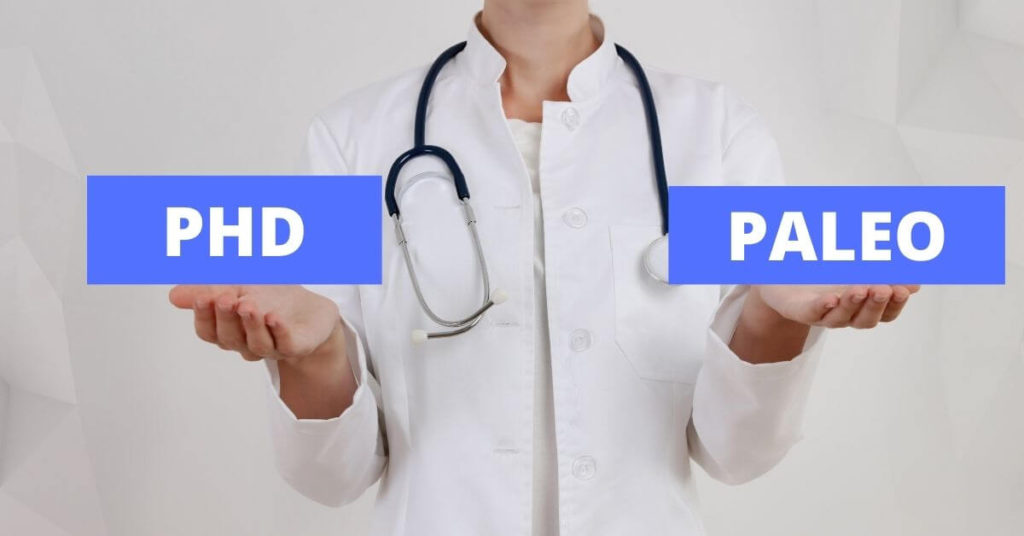Introduction
Eggs have long been a staple in the human diet, recognized for their versatility and dense nutritional profile. As a key component of the carnivore diet, often termed the “Proper Human Diet,” eggs offer a rich source of essential nutrients. This article delves into the multifaceted role of eggs in our daily nutrition, highlighting their myriad health benefits.
The Nutritional Powerhouse in the Proper Human Diet
Eggs, revered for their high-quality protein, vitamins, and minerals, align perfectly with the principles of the carnivore diet. Their nutrient-rich composition supports various bodily functions, which is crucial for maintaining overall health.

Debating the Health Benefits
Despite their nutritional prowess, eggs have been at the center of a longstanding debate. Concerns about cholesterol levels have led to mixed messages regarding their role in a balanced diet. This article aims to clarify these misconceptions, showcasing the positive aspects of including eggs in the Proper Human Diet.
Key Takeaways
- Nutrient-Dense Food Choice: Eggs provide essential proteins, vitamins, and minerals, supporting overall health.
- Cholesterol Content Reassessed: Recent studies suggest that dietary cholesterol in eggs has minimal impact on blood cholesterol levels.
- Carnivore Diet Staple: Eggs are a perfect fit for the Proper Human Diet, offering high-quality animal protein.
- Versatility in Cooking: They can be prepared in numerous ways, fitting various dietary preferences.
- Economic and Accessible: Eggs are widely available and affordable, making them a practical choice for regular consumption.
Egg-cellent Nutrition: Unscrambling the Health Benefits of One Egg
| Nutrient | Amount |
|---|---|
| Calories | 70-80 |
| Protein | 6 grams |
| Total Fat | 5 grams |
| Saturated Fat | 1.6 grams |
| Cholesterol | 186 mg |
| Carbohydrates | Less than 1 gram |
| Vitamins & Minerals | Vitamin A, B vitamins, phosphorus, selenium |
The Nutritional Spectrum of Eggs
Eggs stand out as a top-tier nutritious food, rich in high-quality animal protein and complete with all essential amino acids. Two large eggs offer 13 grams of protein and 11 grams of fat, mostly unsaturated. They are also packed with vital vitamins and minerals like A, D, E, B12, riboflavin, phosphorus, and selenium. The yolk is especially nutritious, containing iron for oxygen transport and choline for cellular health, brain development, and memory. Although high in cholesterol, eggs are a nutritional gem, contributing to various health benefits. A single large, hard-boiled egg provides about 72 calories, 5 grams of fat, 6 grams of protein, and notable amounts of vitamins A, D, calcium, and iron.
Understanding the nutritional value of eggs is key to appreciating their role in the Proper Human Diet. Each egg is a powerhouse of nutrition, packed with essential nutrients while being relatively low in calories.
The Caloric Balance
Eggs are known for their moderate calorie content, making them a suitable option for various diet plans, including weight management.
Protein: Building Blocks of the Body
High-quality protein in eggs aids in muscle building and repair, essential for daily bodily functions and maintaining muscle mass, a crucial aspect of the carnivore diet.
Fats: Essential but Misunderstood
The fats in eggs, particularly the yolks, provide essential fatty acids and help in the absorption of fat-soluble vitamins, contributing to brain health and cellular functions.
Vitamins and Minerals Galore
Eggs are a treasure trove of vitamins like A, D, and B12 and minerals such as selenium and choline. These nutrients support various bodily processes, from vision and bone health to neurological functions.
Understanding these nutritional aspects of eggs underscores their importance in a balanced diet, aligning with the principles of the Proper Human Diet. They are not just a source of nourishment but a crucial component for optimal health and well-being.
The Cholesterol Debate: How Eggs Impact Heart Health

The cholesterol content in eggs has been a topic of debate for years, especially concerning its impact on heart health. Modern research has provided new insights into this issue.
Reassessing Egg Cholesterol
Recent studies have shown that the cholesterol found in eggs has a less significant effect on blood cholesterol levels than previously thought. This challenges the old belief that egg consumption directly correlates with increased heart disease risk.
Balancing Egg Intake
While eggs are now considered safer for cholesterol than once believed, moderation remains key. The general recommendation is to consume up to seven eggs per week. This allows individuals to reap the nutritional benefits of eggs without overconsuming cholesterol.
Eggs and Heart Health
The findings suggest that for most people, eggs can be a part of a heart-healthy diet when consumed in moderation. This aligns well with the principles of the Proper Human Diet, which emphasizes nutrient-rich, animal-based foods.
Understanding the current research helps dispel myths about egg consumption and heart health, positioning eggs as a beneficial component of a balanced diet.
Eggs in Different Diets: Keto, Paleo, and carnivore diet

Eggs are a versatile food that seamlessly integrates into various diets, each with its unique principles and health goals.
Keto Diet: High-Fat, Low-Carb
In the ketogenic diet, eggs are prized for their high fat and protein content with virtually no carbs. This aligns perfectly with the keto goal of inducing ketosis – a metabolic state where the body burns fat for energy instead of carbohydrates. Eggs can be prepared in various ways to suit the high-fat requirements of the keto diet.
Paleo Diet: Back to the Basics
The Paleo diet focuses on consuming foods that were available in the Paleolithic era, emphasizing whole, unprocessed foods. Eggs, being a natural and unprocessed source of nutrition, fit well into this diet. They provide essential nutrients without the additives found in many modern foods.
Carnivore Diet: Emphasis on Animal Products
The carnivore diet (proper human diet) is often considered a spectrum form of the ketogenic diet, centered around animal products exclusively. Eggs are a crucial component here, offering variety and nutritional density. This diet values eggs for their protein and fat content, essential in a diet devoid of plant-based foods.
In each of these diets, eggs provide essential nutrients while adhering to the dietary restrictions and goals. The diversity of preparation methods further enhances eggs’ suitability across these dietary plans, making them a universal ingredient in health-focused diets.
Cooking with Eggs: Healthy Recipes and Tips

Cooking with eggs is a delightful way to enrich your diet with high-quality protein and fats, essential for a healthy and balanced lifestyle. Here are some nutritious and delicious ways to include eggs in your meals, embracing the benefits of a high-fat, high-protein diet.
Breakfast: A Protein-Packed Start
Begin your day with scrambled eggs, using butter or ghee for a rich flavor and healthy fats. Incorporating vegetables like spinach or tomatoes adds nutrients and color to your meal.
Lunch: Fueling Up with Eggs
For a midday boost, a classic omelet with cheese and ham offers a perfect balance of protein and fat. Alternatively, a Cobb salad topped with hard-boiled eggs and avocado provides a satisfying and nutritious option.
Dinner: Eggs as the Main Attraction
Eggs can be a star ingredient in your evening meal. Try a frittata with a variety of meats and full-fat cheese, showcasing the versatility of eggs in a high-fat diet.
Snacks: Quick and Nutritious Bites
For snacks, deviled eggs made with full-fat mayonnaise or a simple egg salad can be both satisfying and in line with a high-fat, high-protein dietary approach.
Cooking Tips for a High-Fat Diet
- Use healthy fats like olive oil, butter, or coconut oil for frying or scrambling eggs.
- Don’t shy away from adding full-fat cheese for extra flavor and nutrients.
- Incorporate high-protein ingredients like meats or other animal products to enhance the nutritional value of egg dishes.
These meal ideas demonstrate how eggs can be a cornerstone of a high-fat, high-protein diet, offering both taste and nutritional benefits.
The Myths and Facts about Egg Consumption

Eggs have been subject to various myths that have caused confusion about their role in a healthy diet. Let’s address some of these myths and present the factual information.
Myth: Eggs Raise Cholesterol Levels to Dangerous Heights
Contrary to popular belief, eggs do not significantly impact the cholesterol levels in most people. The cholesterol in eggs does not translate directly into high blood cholesterol.
Myth: Eggs Are Unhealthy
In reality, eggs are a powerhouse of nutrition. They contain high-quality protein, essential amino acids, and important vitamins and minerals, making them a valuable part of a balanced diet.
Myth: Brown Eggs Are More Nutritious Than White Eggs
The color of the eggshell is determined by the breed of the hen and has no bearing on the nutritional value of the egg.
Myth: Eating Raw Eggs Is More Nutritious
Cooking eggs actually makes the protein in them more digestible. Also, cooking them reduces the risk of salmonella infection.
Myth: You Should Only Eat Egg Whites
While egg whites are a good source of protein, the yolk contains most of the egg’s nutrients, including vitamins, minerals, and healthy fats.
By understanding the truths about eggs, we can appreciate their role in a healthy, high-fat, high-protein diet, dispelling the myths that have long surrounded their consumption.

FAQs About Eggs and Nutrition
Q: How many eggs can I eat per day without harming my health?
A: For most people, up to three whole eggs per day have been deemed safe as part of a balanced diet.
Q: Do eggs increase the risk of heart disease?
A: Current research indicates that moderate egg consumption does not significantly impact the risk of heart disease in healthy individuals.
Q: Are brown eggs healthier than white eggs?
A: No, the nutritional value of an egg is not affected by its shell color, which is determined by the breed of the hen.
Q: Can I eat eggs if I’m trying to lose weight?
A: Yes, eggs can be a valuable part of a weight loss diet due to their high protein content and satiety-providing properties.
Q: Is the cholesterol in eggs harmful?
A: The dietary cholesterol in eggs does not usually raise cholesterol levels in the blood for most people, and they can be safely included in a balanced diet.
Eggs are nearly a perfect superfood for humans. There are people who have sustained themselves solely on eggs for years and remained healthy throughout that time. Eat your eggs; they are good for you!
References:
Eggs not linked to cardiovascular risk, despite conflicting advice.


